Next Months Critical For Ukraine As Iran Is Busy With Internal Affairs - CIA
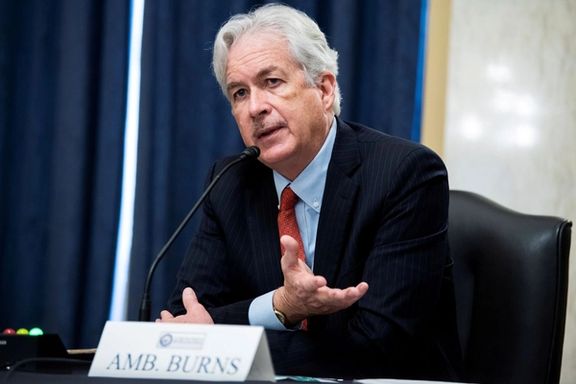
The CIA says the next six months will be "critical" for the Russian invasion of Ukraine especially as the Iranian government is busy with its domestic issues.

The CIA says the next six months will be "critical" for the Russian invasion of Ukraine especially as the Iranian government is busy with its domestic issues.
CIA Director William Burns said on Thursday the intelligence agency assesses that the next six months will be "critical" for Ukraine in its fight against Russia's invasion.
Speaking at a foreign policy event at Georgetown University in Washington, D.C., Burns also said Iran's government was increasingly unsettled by affairs within the country, citing the courage of what he described as "fed up" Iranian women.
Burns also said he was concerned about prospects for greater violence between Israelis and Palestinians
Tehran has supplied hundreds of drones to Russia since mid-2022 that have been used during missile attacks to inflict more damage or to swamp Ukrainian air defenses. The United States and Europe have imposed new sanctions on Tehran for its expanded military ties with Moscow and also its deadly crackdown on protests since last September.
Iran has denied supplying weapons to Russia for its war in Ukraine, but foreign minister Hossein Amir-Abdollahian after earlier denials acknowledged in early November that Tehran had supplied drones to Moscow “months before” the Ukraine war, leaving it vague if these were used in the war.
The United States and its European allies have strongly objected to Iranian drones for Russia, imposing sanctions move, and keeping nuclear talks with Tehran dormant.
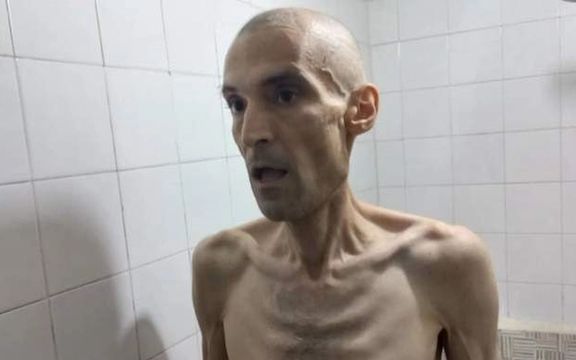
The health of long-time Iranian political prisoner, Farhad Meysami, who has lost a lot of weight due to his hunger strike, has deteriorated.
A photo of Meysami along with a letter from Rajaei-Shahr prison in Karaj were published on social media Thursday, showing him in a horrible condition after losing weight.
However, the political activist wrote in the letter to prison officials that “I will still insist on my three demands of stopping the execution of protesters, releasing six political prisoners, and stopping mandatory hijab.”
The title of political activist's letter is "For the days of suffering and suffering and suffering".
Farhad Meysami, who has been behind bars since August 2018 was arrested and sentenced to six years in jail for his activism against mandatory hijab.
Last month, in a message from Rajaei-shahr prison, he demanded the immediate release of several civil and political activists.
Meysami also went on a hunger strike in May in protest to the possible execution of Ahmadreza Jalali, a Swedish-Iranian dual national scientist taken hostage since 2016 was under the threat of execution last year.
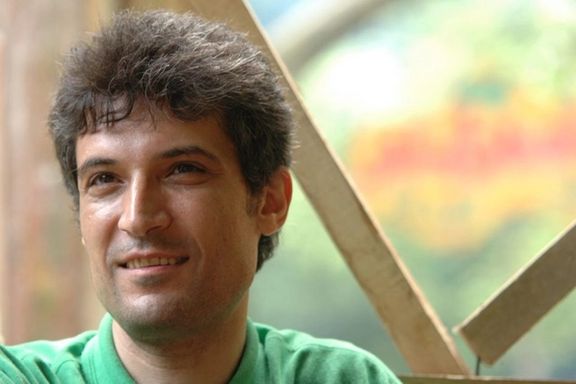
Meysami later announced that he has ended his two-week hunger strike as Ahmadreza Jalali was not executed. Before the end of that hunger strike, his physical condition was so critical that he was transferred to hospital.
Meysami, a doctor and teacher, said in a message last year that he had met Djalali at Tehran's Evin prison over three years earlier. "He had been on hunger strike in protest to repeated threats of his execution and the effects of which on his body and soul were clearly visible," he wrote.
"Imagine subjecting a human being to this repeatedly. Not once, not twice… Is there any torture worse than this?" Meysami said about repeated threats of execution made against Djalali.
"I don't want to just oppose Dr Djalali's execution, I want to draw attention to something much more important, to draw attention to the fact that they send a man to his death many times and bring him back," he wrote. "Regular and intentional torture like this is definitely crime against humanity."
Meanwhile, famous Iranian filmmaker Jafar Panahi has also gone on a hunger strike to protest his detention in Tehran while his sentence has been declared void by the country’s Supreme Court.
“I firmly declare that in protest against the illegal and inhumane behavior of the judicial and security apparatus and their hostage-taking, I have started a hunger strike since the morning of February 1… I will refuse to eat and drink any food and take medicine until the time of my release,” read a statement he sent to his wife.
Iran has been the scene of nationwide protests against the clerical regime after the death in custody of Mahsa Amini in mid-September.
Authorities have not released any information on the number of detainees, those injured and killed in the protests that began nearly three weeks ago following the death in custody of Mahsa Amini who was arrested for not wearing her hijab “properly”.
Human rights organizations says that nearly 520 protesters, including children, have been killed by security forces during the protests.
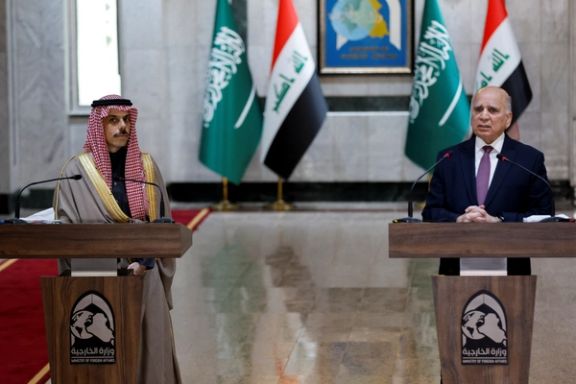
Regional and Western countries are moving to build closer cooperation with Iraq as a measure to curb the influence of the Islamic Republic in economy and politics of its neighboring country.
On Thursday, Saudi Arabia’s foreign minister, Prince Faisal bin Farhan al Saud, visited Iraq, affirming that economic relations with Iraq were developing significantly. Bin Farhan made the statement during a joint press conference held in Iraq with the country’s Foreign Minister Fuad Hussein.
Hussein said, "security cooperation continues with Saudi Arabia" and added they were “working to reduce tensions in the region,” highlighting the depth of relations with Iraq, which he stated had "witnessed great momentum recently.”
“We support the Iraqi government’s effort to enhance stability,” he said, adding that stability was crucial in order for opportunities for prosperity to rise.
Prince Faisal added that economic ties with Iraq have also “greatly improved,” noting that “The region cannot prosper without stability.”
Hussein also highlighted relations with Saudi Arabia, saying “security cooperation” is ongoing with Riyadh and added that “[We] are working on easing tensions in the region.”
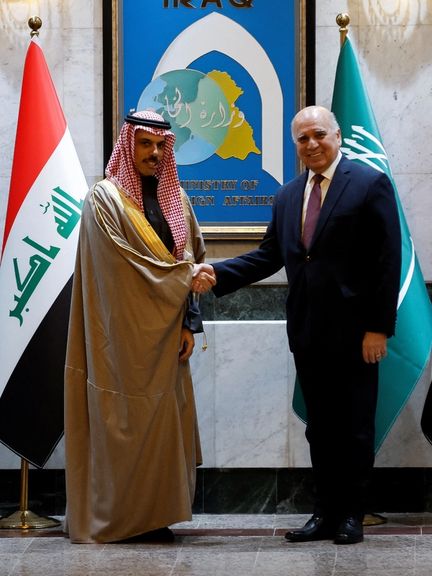
Earlier in the week, French President Emmanuel Macron met with Iraq Prime Minister Mohammed Shia Al-Sudani, in which the two signed a set of strategic agreements meant to boost Iraq’s economic cooperation with the European country. In the meeting, France and Iraq signed a treaty that seeks to strengthen bilateral relations in anti-corruption, security, renewable energy and culture, the Elysee Palace said on Friday.
Macron launched the Baghdad Conference for Cooperation and Partnership in 2021, which aims at strengthening regional stability by involving Iraq and enhancing its role.
Prince Faisal is expected to meet with President Abdul Latif Rashid, Prime Minister Mohammed Shia al-Sudani and Parliament Speaker Mohammed al-Halbous.
"This important visit comes at a time marked by great challenges, so it is essential to talk and discuss these challenges which affect the region as a whole," Hussein said, alongside Prince Faisal.
“We will not achieve these goals without a secure and stable region, and here is where Iraq plays an essential and important role in enhancing this stability. We will work together to advance the stability process in the region through dialogue, promoting common interests, and addressing any disagreements,” said the Saudi foreign minister.
Hussein hailed "total cooperation" with Saudi Arabia on oil, particularly within the OPEC cartel. Iraq's foreign minister said Riyadh was ready to back Saudi companies investing in Iraq, and welcomed it. "We hope Iraq will be supplied with electricity, either via the Saudi network or that in the Gulf," he said.
Despite being oil-rich, Iraq suffers from insufficient infrastructure and public services, after decades of conflict and endemic corruption. Baghdad is currently heavily dependent on the Islamic Republic for its electricity and gas, and has sought to diversify its energy sources. Iraq suffers from chronic electricity shortages, especially felt when summer temperatures reach scorching levels of over 50 degrees Celsius. The high temperatures subsequently push citizens to consume very high amounts of power.
Baghdad has taken a role as a mediator between the regional rivals Iran and Saudi Arabia, after diplomatic relations between Riyadh and Tehran froze in 2016. Since April 2021, Iraq has hosted a series of meetings between the two sides, but no talks have been publicly announced since April 2022.
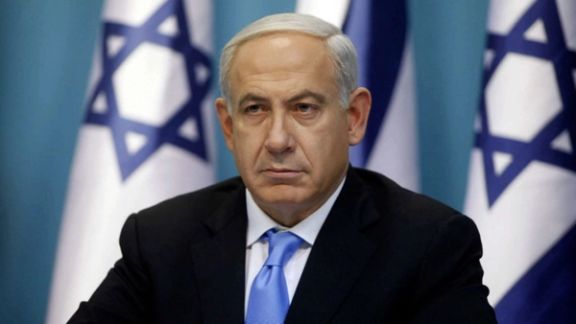
Israeli Prime Minister Benjamin Netanyahu will discuss Iran with French President Emmanuel Macron in Paris during his first foreign trip after regaining office.
The Israeli Embassy in Paris announced Netanyahu will be in Paris on Thursday, February 2, and an order of priority he first will discuss with Macron the international efforts to stop the nuclear program of the Islamic Republic.
Macron and Netanyahu last met and talked three years ago in Jerusalem.
According to the Israeli embassy, the prime minister will also meet with French businessmen as well as the leaders of the French Jewish community.
The AFP reported that Israel hopes to encourage France to intensify pressure on the Iranian regime during the trip.
France agrees that "firmness" is needed in dealings with Iran, a diplomatic source told AFP, calling its nuclear program "dangerous" and highlighting its role in the Ukraine war.
Referring to Netanyahu's recent statements, AFP said that there seems to be a significant change in Israel's position regarding the war in Ukraine and that Jerusalem is now ready to consider the issue of providing arms to Ukraine.
So far, Israel has been cautious and has preferred to remain neutral in the Ukraine war due to the presence of the Russian army in Syria.
Israel has been able to continue its military air operations over Syria without facing a military response from Russia.
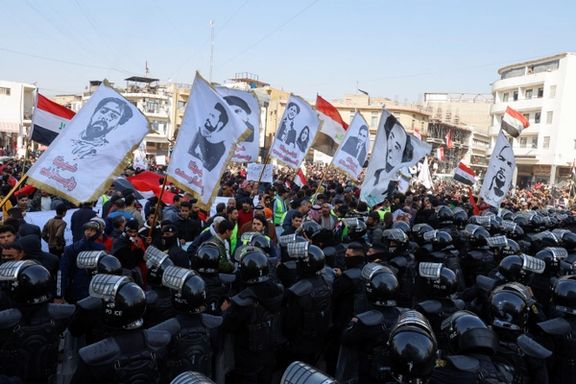
Washington has imposed new restrictions on dollar transfers to Iraq as the Arab country’s banking officials believe there is widespread money laundering sending funds to Iran and Syria.
The Associated Press reported Thursday that the move was triggered a couple of months ago to stamp out what Iraqi officials describe as rampant money laundering that benefits Tehran and Damascus which are under US sanctions.
Iraq is now feeling the result, with an unprecedented drop in the value of its currency and public anger blowing back against the prime minister.
The exchange rate for the Iraqi dinar has jumped to around 1,680 to the dollar at street exchanges, compared to the official rate of 1,460 dinars to the dollar.
Hundreds of people once again demonstrated near the central bank headquarters in Baghdad on Wednesday to protest the devaluation of the Iraqi dinar against the dollar, which has triggered a rise in prices of imported consumer goods.
An informed source last week told Iran International that representatives from the Iraqi government are scheduled to go to US this month to discuss US monitoring and restrictions on dollar wire transfers by Iraqi banks that have reduced the supply of the greenback in the country.
People from different Iraqi regions waved Iraqi flags or carried banners demanding government intervention to stop the dinar's decline to around 1,620 to the greenback from 1,470 in November. “Stop the neighbors stealing our dollars,” one banner read, alluding to Iran.
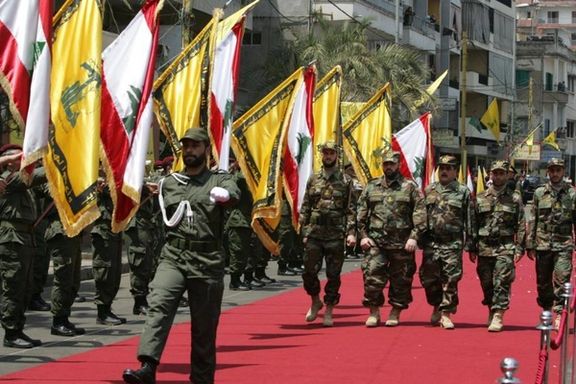
Israel asked visiting Chadian President Mahamat Deby on Thursday to reduce the influence of Iran and Hezbollah in Africa’s Sahel region.
The trip to open Chad’s embassy in Israel, included a rare stop at the Mossad intelligence headquarters - a sign that bilateral ties re-established five years ago have national security importance.
"This is a great day, an historic day for Chad and for Israel, too," Deby said in a videotape of the inauguration.
"I offer a prayer to God that, with the formal opening of our embassy here, relations between our countries will bring value to both peoples, yours and ours."
Standing beside the Chadian president, Netanyahu said: "We are strengthening our friendship, and our common interest in pursuing peace, security and prosperity."
Meeting Deby earlier, Israeli Defense Minister Yoav Gallant "raised the importance of narrowing the influence of Iran and Hezbollah in the Sahel region, as a key to ensuring stability, and thwarting the export of terrorism," Gallant's office said.
There was no immediate comment from the government in Chad or Tehran. In Beirut, Hezbollah's media office declined comment.
Muslim-majority Chad has not publicly spoken of any significant presence by Iran or Hezbollah in the Sahel, parts of which are contending with Sunni Islamist insurgencies.
Having returned to power last month, Netanyahu has vowed to expand the circle of Arab or Muslim countries that recognize Israel - even as he contends with a deepening and violent stalemate with the Palestinians.